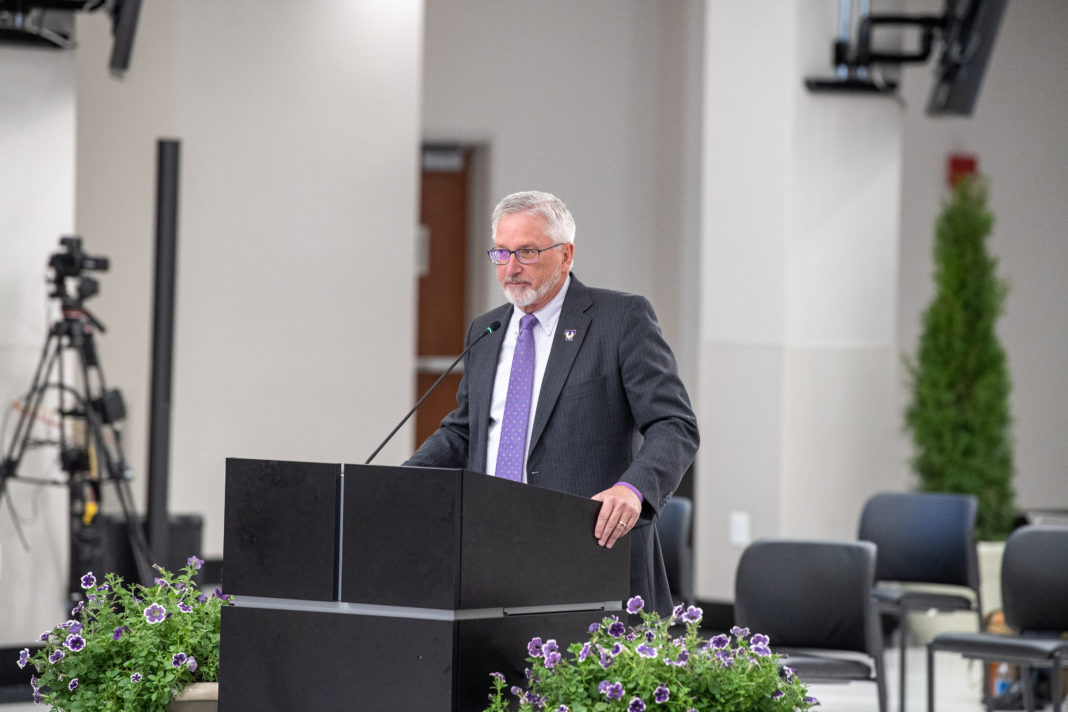New program will address the need for a workforce that can apply computing solutions across non-computing fields
COOKEVILLE – Tennessee Tech announced it is creating a new degree that will provide students with a strong foundation in technical computing skills along with knowledge in varying majors across campus. This innovative degree is the first such program in Tennessee.
“Computing has had a great impact on the way that government, education, entertainment, commerce and industry operates, innovates and creates,” said Tennessee Tech President Phil Oldham. “A recent article in Inside Higher Ed noted that students need a computer science foundation to prepare for success later in their curriculum.”
The Bachelor of Science in Interdisciplinary Computing and Innovation combines study in computer science, innovation and entrepreneurship, and other academic disciplines. The program is designed so that students originating from all of Tech’s colleges and schools can have experiences that integrate computing and innovation with those interests. The computing core of the program will be taught by faculty in the computer science department.
“This program will weave technology-infused coursework into the deep knowledge base of students in non-computing majors to build a 21st century degree that more effectively and efficiently addresses the challenges of a changing world,” Oldham said.
According to Lori Mann-Bruce, provost and vice president for Academic Affairs, the new degree is designed for students who don’t want to be computer scientists, but want to be computing professionals who apply computing solutions to their fields.
The university has submitted the program for expedited approval by the Tennessee Higher Education Commission. Pending that commission’s approval, the program will enroll students in Fall 2023.
New stadium and parking garage building projects approved
Two new disclosed building projects were approved for the 2022-2023 budget year: the replacement for the West Tucker Stadium structure and the construction of a multi-level parking garage at the corner of Stadium Drive and Wings Up Way.
“A winning university football program can generate tremendous benefits to the campus and local community,” Oldham said. “It can boost the local economy, strengthen the community/campus relationship, create spirit and pride in the student body, and generate publicity and visibility that increases student enrollment.”
The project includes demolition of the existing West Stadium and replacement of the stadium with an updated 60,000-square-foot facility with total seating capacity of 5,300, made up of suites, club level, chairback, and berm seating. The total project cost is projected to be $29.9 million, with $23 million coming through bond financing.
The parking garage will be a four-level structure with 412 spaces, located behind Ray Morris Hall. The total project cost is projected to be $13.9 million, with $12.9 million coming through bond financing.
“The parking garage is a significant step forward for the campus to facilitate access to campus,” Oldham said.
Both the stadium and parking garage projects will be self-funded through university funds, private gifts and bond financing.
In other business
- Four members of Tech’s University Orchestra, all representing different majors, spoke to the board after a brief performance by a larger number of members of the group. Tech’s student orchestra is open to all students at Tennessee Tech that have experience playing a stringed instrument, regardless of major. The following students all shared about how the opportunity to be a musician while engaged in their academic studies attracted them to Tech: Noah Brown, a freshman music performance major from Gainesboro; Emma Fox, a junior special education major from Knoxville; Kester Nucum, a junior computer engineering major from Paris, Tennessee; and Ihuoma Ohanaka, a senior chemical engineering student from Nashville.
- Due to continued high student enrollment, the animal science and pre-veterinary concentrations in the bachelor’s degree in agriculture will become a separate Bachelor of Science in Animal Science degree, pending final approval by THEC. Currently, these concentrations account for a third of the School of Agriculture’s enrollment. It is expected that this change will enhance the career opportunities of graduates, along with strengthening the visibility and marketability of the program to prospective students.
- The board learned that Tech’s externally funded research is up $1.6 million year-to-date over last year. With more than half of the fiscal year remaining, Tech researchers have already activated $17.4 million in externally funded projects. The total for the entirety of last year was $22.7 million.
- The board approved Tech’s October revised budget of $175.3 million for 2021-2022.
- The board heard the annual results of the university’s financial health metrics, which resulted in a Composite Financial Index number of 4.87, which signifies the strong financial health of the university. According to the national standards, 3.0 is the expected score, with 1.0 being the caution threshold.
Materials from today’s meeting and the webcast of the meetings are available at https://www.tntech.edu/board.
The board’s next meeting is March 10, 2022.








